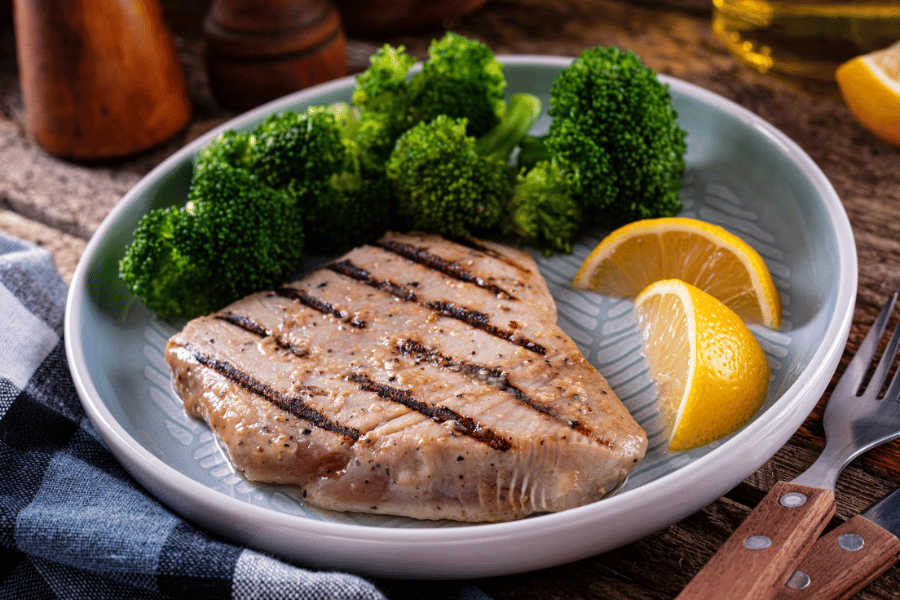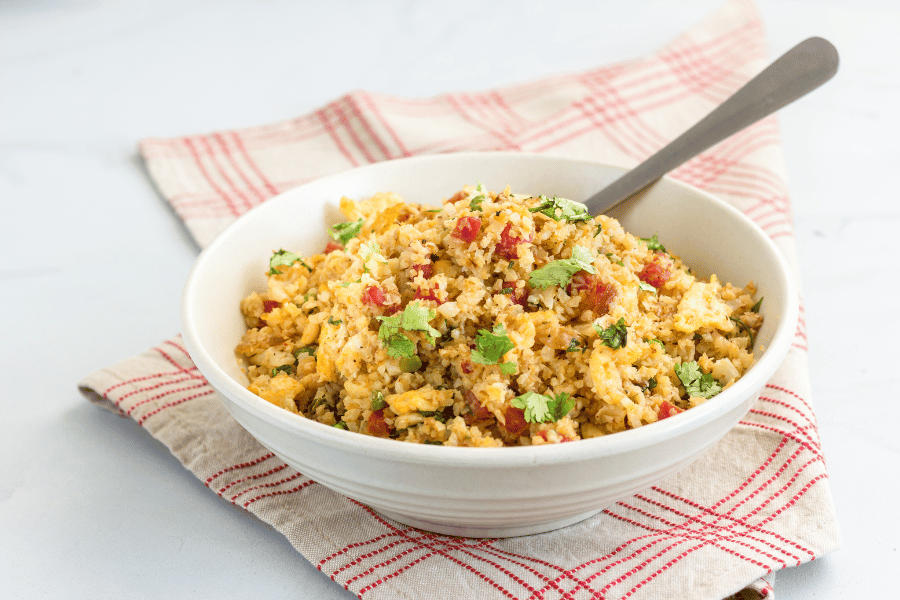Embarking on a journey of weight loss in 2024, the keto diet stands out as a revolutionary approach, distinctly different from traditional diets. At its core, the ketogenic diet is a high-fat, moderate-protein, and low-carbohydrate diet, which fundamentally alters the way your body utilizes energy. Unlike conventional diets that often rely on calorie restriction, the keto diet focuses on a metabolic state known as ketosis. In ketosis, your body efficiently burns fat for fuel instead of carbohydrates, leading to effective weight loss.
The science behind keto is compelling. By drastically reducing carbohydrate intake, the body is forced to turn to stored fat, resulting in weight loss. This process not only aids in shedding pounds but also contributes to other health benefits such as improved blood sugar control and enhanced mental clarity. The uniqueness of keto lies in its focus on fats as the primary energy source, a stark contrast to other diets that often emphasize carbohydrates or lean proteins.
As we dive into the intricacies of the keto diet weight loss plan, we’ll explore its phases, starting from the initial adjustment to ketosis, through to deepening and maximizing weight loss, and culminating in a sustainable, healthy lifestyle. This journey isn’t just about losing weight; it’s about a transformative lifestyle change that promotes overall well-being.

Week 1: Kickstarting Your Keto Journey
The first week of your keto diet weight loss journey is crucial in setting the stage for success. It involves a significant shift in your eating habits, which can be both exciting and challenging. Here’s what to expect and how to effectively navigate this initial phase:
Preparing for a Keto Diet: What to Expect:
- Body Adjustment: Your body will transition from burning carbs for energy to burning fat. This change can lead to the “keto flu,” characterized by symptoms like fatigue, headaches, and irritability, typically lasting a few days.
- Appetite Changes: Many people experience a decrease in hunger as their bodies adapt to ketosis, a beneficial aspect for weight loss.
- Increased Thirst: The keto diet has a natural diuretic effect, so you might feel more thirsty than usual. It’s important to stay hydrated.
Meal Planning and Grocery Shopping for Week 1:
- Focus on Keto Staples: Your grocery list should include high-fat, low-carb foods like avocados, cheese, fatty fish, nuts, and leafy greens.
- Avoid Temptations: Steer clear of high-carb items like bread, pasta, sugar, and starchy vegetables.
- Plan Your Meals: Prepare a meal plan for the week. This could include scrambled eggs with spinach for breakfast, a tuna salad for lunch, and a chicken and vegetable stir-fry for dinner.
Addressing Common Challenges and How to Overcome Them:
- Keto Flu: To alleviate symptoms, stay hydrated, get adequate sleep, and consider adding electrolyte supplements to your diet.
- Cravings: Combat carb cravings with keto-friendly snacks like cheese, nuts, or an occasional serving of berries.
- Social Settings: When dining out or in social settings, choose keto-friendly options and don’t hesitate to ask for modifications, like swapping fries for a side salad.
The first week is about laying the foundation for your keto diet weight loss journey. Stay committed, be prepared for some initial challenges, and keep your eye on the long-term goal: a healthier, leaner you.
| Aspect | Week 1 | Week 2 | Week 3 |
|---|---|---|---|
| Daily Calorie Intake | 1,800 calories | 1,600 calories | 1,500 calories |
| Carbohydrate Limit | 30 grams per day | 20 grams per day | 10 grams per day |
| Protein Intake | 120 grams per day | 130 grams per day | 140 grams per day |
| Fat Intake | 140 grams per day | 150 grams per day | 160 grams per day |
| Water Consumption | 8-10 cups per day | 8-10 cups per day | 8-10 cups per day |
| Exercise Routine | 30 minutes/day | 45 minutes/day | 60 minutes/day |
| Weekly Weight Loss Goal | 2-3 pounds | 2-3 pounds | 2-3 pounds |
| Recommended Foods | Lean meats, eggs, | Leafy greens, | Fish, avocado, |
| non-starchy | nuts, seeds, | olive oil, | |
| vegetables, dairy | berries, | low-carb veggies, | |
| products | avocados | dairy products | |
| Foods to Avoid | Sugar, grains, | Sugar, grains, | Sugar, grains, |
| starchy vegetables, | starchy vegetables, | starchy vegetables, | |
| processed foods | processed foods | processed foods | |
| Sample Daily Menu | – Breakfast: | – Breakfast: | – Breakfast: |
| Scrambled eggs | Greek yogurt with | Omelette with | |
| with spinach | mixed berries | spinach and cheese | |
| – Lunch: | – Lunch: | – Lunch: | |
| Grilled chicken | Spinach salad with | Grilled salmon | |
| salad with | grilled chicken | with asparagus and | |
| avocado | and avocado | avocado | |
| – Dinner: | – Dinner: | – Dinner: | |
| Baked salmon with | Cauliflower rice | Zucchini noodles | |
| broccoli | with grilled | with pesto sauce | |
| shrimp | and cherry tomatoes | ||
| Snacks | – Almonds | – Celery sticks with | – String cheese |
| – Cheese slices | almond butter | and cherry tomatoes | |
| – Sliced cucumbers | – String cheese | – Greek yogurt with | |
| with hummus | – Berries | strawberries | |
| – Hard-boiled eggs |

Week 2: Deepening Ketosis and Understanding Changes
As you progress into the second week of your keto diet weight loss journey, your body begins to adapt more fully to the state of ketosis. This week is about recognizing and understanding the deeper state of ketosis, making dietary adjustments for enhanced weight loss, and managing cravings while maintaining motivation.
Recognizing the Signs of Ketosis:
- Increased Energy and Focus: Many individuals report a significant boost in energy levels and clearer thinking once they are fully in ketosis.
- Reduced Appetite: A hallmark of ketosis is a decrease in hunger. This is due to ketones’ appetite-suppressing effect.
- Weight Loss: A steady loss of weight is a clear indicator that you are in ketosis.
- Keto Breath: A temporary change in breath odor — often described as fruity or metallic — is a common sign of ketosis.
Adapting Your Diet to Enhance Weight Loss:
- Fine-Tune Your Macros: Based on your first week’s experience, adjust your intake of fats, proteins, and carbs to optimize ketosis.
- Incorporate Intermittent Fasting: Consider adding intermittent fasting to your routine, as it can enhance ketosis and accelerate weight loss.
- Experiment with Fat Bombs: If you need a snack, try keto-friendly “fat bombs” — snacks high in healthy fats and low in carbs.
Managing Cravings and Maintaining Motivation:
- Keto-Friendly Alternatives: Satisfy cravings with keto alternatives, like dark chocolate for sweets or zucchini noodles for pasta.
- Track Your Progress: Regularly monitoring your weight loss and body changes can be a huge motivator. Keep a journal or use an app.
- Stay Connected: Engage with the keto community online or with friends who are also on the diet. Sharing experiences and tips can be incredibly motivating.
This week is about deepening your understanding of ketosis and using this knowledge to enhance your keto diet weight loss strategy. Remember, adapting to this new lifestyle takes time and patience, but the results can be profoundly rewarding.
Week 3: Maximizing Weight Loss and Planning Ahead
Entering the third week of your keto diet weight loss journey, you’re likely more comfortable with the diet’s nuances and ready to optimize your approach. This week focuses on advanced strategies to accelerate weight loss, incorporating exercise effectively, and transitioning from a short-term plan to a sustainable keto lifestyle.
Advanced Keto Strategies for Accelerated Weight Loss:
- Cyclic Ketogenic Diet: Consider introducing a cyclic approach, where you have higher-carb days followed by standard keto days. This can boost metabolism and prevent plateaus.
- Calorie Cycling: Vary your calorie intake throughout the week. Eating fewer calories on some days and more on others can enhance fat loss.
- Targeted Ketogenic Diet (TKD): If you’re exercising, TKD allows for small amounts of fast-absorbing carbs around workouts, providing energy without exiting ketosis.
Incorporating Exercise for Optimal Results:
- Strength Training: Muscle-building exercises can enhance metabolism and improve body composition, making them a great addition to the keto diet.
- High-Intensity Interval Training (HIIT): HIIT can be more effective than traditional cardio in a keto-adapted state, as it utilizes fat stores for energy.
- Consistency and Variety: Maintain a consistent exercise routine, but vary your activities to keep it enjoyable and effective.
Transitioning from a 3-Week Plan to a Sustainable Lifestyle:
- Long-Term Mindset: Shift from viewing keto as a diet to adopting it as a lifestyle. Focus on nourishing your body rather than just losing weight.
- Flexible Keto Approach: As you move beyond three weeks, consider a more flexible approach to keto, allowing for occasional indulgences while maintaining overall ketosis.
- Continuous Learning: Stay informed about the latest keto trends and research. Knowledge is power, especially when it comes to maintaining a healthy lifestyle.
This third week is about maximizing your efforts and laying the groundwork for a sustainable, enjoyable keto lifestyle. By implementing advanced strategies, exercising smartly, and planning for the long term, you’re setting yourself up for continued success in your keto diet weight loss journey.

Success Stories and Inspirational Transformations
In this section, we celebrate the successes and transformative journeys of individuals who have embarked on the keto diet weight loss journey. Their stories serve as powerful testaments to the effectiveness of the keto diet and provide valuable insights and inspiration.
Real-Life Case Studies of Keto Diet Weight Loss:
- John’s Journey: John, a 35-year-old accountant, struggled with obesity for years. After switching to a keto diet, he lost 50 pounds in six months. His success wasn’t just in weight loss; he also experienced significant improvements in energy levels and mental clarity.
- Emma’s Transformation: Emma, a 28-year-old teacher, turned to keto to lose post-pregnancy weight. In just four months, she not only shed 30 pounds but also reported better skin health and reduced sugar cravings.
Key Takeaways from Successful Keto Journeys:
- Consistency is Crucial: Successful individuals emphasize the importance of sticking to the diet consistently, even when progress seems slow.
- Personalization Works Wonders: Tailoring the diet to personal preferences and lifestyle choices is key. There is no one-size-fits-all in keto.
- Support Systems Matter: Many success stories highlight the role of community support, whether it’s online forums, family, or friends, in keeping them motivated.
These inspiring stories showcase the transformative power of the keto diet, not just in terms of physical appearance but also in overall health and well-being. Each story is unique, yet they all share a common theme of commitment, adaptation, and the positive impact of the keto diet weight loss journey. Let these stories inspire you as you continue or embark on your own keto journey.
FAQs: Navigating Your Keto Diet Weight Loss Journey
In this final section, we address some of the most common questions and concerns related to the keto diet weight loss journey. These FAQs aim to provide clarity and expert tips for maximizing weight loss while maintaining overall health and well-being.
Q1: How do I know if I’m in ketosis?
- A: Signs of ketosis include reduced appetite, increased energy, weight loss, and possibly a fruity or metallic taste in the mouth. For a more precise method, you can use ketone test strips to measure ketone levels in your urine.
Q2: Can I eat fruits and vegetables on a keto diet?
- A: Yes, but choose low-carb options. Leafy greens, broccoli, cauliflower, zucchini, avocados, and berries (in moderation) are great choices.
Q3: How can I avoid the keto flu?
- A: Stay hydrated, maintain electrolyte balance by consuming foods rich in potassium, magnesium, and sodium, and eat enough fat and calories to meet your body’s needs.
Q4: Is it possible to eat out while on a keto diet?
- A: Yes, you can dine out on a keto diet. Opt for dishes high in fats and proteins, like steak or fish, and swap high-carb sides for vegetables. Be cautious of sauces and dressings, as they may contain hidden sugars and carbs.
Q5: How long should I stay on the keto diet?
- A: The duration varies for each individual. Some people adopt keto as a long-term lifestyle, while others use it for short-term weight loss goals. Consult with a healthcare professional for personalized advice.
Q6: Can I drink alcohol on a keto diet?
- A: Alcohol can be consumed in moderation. Choose low-carb options like dry wine, champagne, or spirits mixed with zero-carb mixers. Be aware that alcohol may impact ketosis and weight loss progress.
Q7: How do I deal with a weight loss plateau on keto?
- A: To overcome a plateau, try recalibrating your macronutrient ratios, incorporating intermittent fasting, increasing physical activity, or ensuring you’re not consuming hidden carbs.